Breaking
- MENU
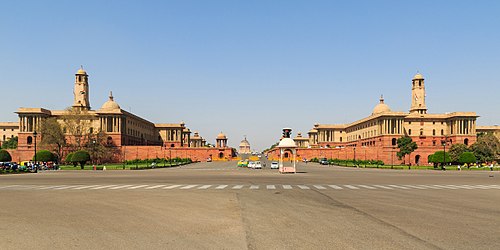
BILATERAL ISSUES
EGYPT
Procurement of 300,000 doses of Remdesivir from M/s EVA Pharma, Cairo, 10 May 2021.
The Embassy of India in Cairo on behalf of the Ministry of Health and Family Welfare, Government of India signed an agreement to procure 300,000 doses of Remdesivir vials from M/s EVA Pharma for Pharmaceuticals and Medical Appliances, Egypt.
The signing ceremony, presided by Ambassador Ajit Gupte and Dr. Riad Armanious, CEO of M/s Eva Pharma, was held at the Embassy premises at Zamalek, Cairo.
The procurement of these drugs will be crucial in the fight against Covid 19 in India, said Ambassador Gupte. Shipment of the vials are expected to begin quickly in the next few days. Source: Embassy of India, Cairo.
Delivery of first batch of Remdesivir from M/s EVA Pharma to India, Cairo, 19 May 2021.
The Embassy of India in Cairo is pleased to inform that M/s EVA Pharma for Pharmaceuticals and Medical Appliances, Egypt has delivered its first batch of 40,000 vials of REMDESIVIR to India on 13th May 2021. The medicines have been dispatched to various hospitals and COVID facilities across the country.
The Embassy of India wishes to thank M/s EVA Pharma for delivering the first batch of Remdesivir ahead of schedule and assisting in the efforts in providing quick relief to the people affected by COVID-19 pandemic in India. Source: Embassy of India, Cairo.
KUWAIT
Inauguration of AYUSH Information Cell & Curtain Raiser for International Day of Yoga (IDY) 2021, Kuwait, 21 May 2021.
Embassy of India in Kuwait organized a n event to inaugurate AYUSH Information Cell and Curtain Raiser for International Day of Yoga (IDY) 2021 at the Embassy of India premises today on May 21, 2021 in hybrid format. The event is one of the many events the Embassy, under the banner of Indian Cultural Network (ICN), is going to organize, under 75 and 60th Anniversary celebrations of Establishment of Diplomatic Relations between India and Kuwait. The event also marks the Government of India ’s initiative to spread awareness about the AYUSHSystems abroad.
Ambassador of India to Kuwait His Excellency Shri Sibi George delivered the opening remarks on this prestigious event. Ambassador, in his speech, welcomed and thanked Secretary, Ministry of AYUSH and Diplomatic community to attend the event virtually. He paid tributes to all those affected by the COVID 19 pandemic and presented his gratitude to the Government of State of Kuwait and other Indian Associations & Groups in Kuwait for providing India with Medical Assistance in these very critical times The Ambassador underlined the importance of Indian Traditional Medical systems viz. Ayurveda, Yoga, Unani, Sidhdha and Homeopathy (AYUSH) in the current scenario with Ayurveda and Yoga in particular
Shri Rajesh Kotecha, Secretary, Ministry of AYUSH, Government of India inaugurated the AYUSH Information Cell virtually. He thanked the leadership of the State of Kuwait for hosting a large Indian community in Kuwait and the people of Kuwait for the care and support extended to the Indian community during the COVID-19 pandemic. He also acknowledged the support of Indian Doctors, Nurses, Scientists and medical professionals for their unwavering spirit in continued fight against COVID-19, all across the World and in Kuwait. In his speech, the Secretary, Ministry of AYUSH appreciated the Embassy for initiating efforts for establishment of AYUSH information cell in Kuwait for proper dissemination of Ayurveda knowledge and propagation of health through Ayurveda. The Secretary emphasized on how AYUSH Systems of medicine are ideal for both disease prevention and healthcare.
Today, in addition to inauguration of AYUSH Information Cell, in Kuwait; the Today, in addition to inauguration of AYUSH Information Cell, in Kuwait; the Embassy felicitated AYUSH Promoters for their contribution and also released its Embassy felicitated AYUSH Promoters for their contribution and also released its first AYUSH Bulletin in Kuwait. first AYUSH Bulletin in Kuwait.
The event also witnessed live demo of some Yogasanas, while following event also witnessed live demo of some Yogasanas, while following COVID--19 protocols.
The event received a huge response from Kuwait on ed a huge response from Kuwait on embassy’s social media. embassy’s social media. Source: Embassy of India, Kuwait.
Launch of Indian Business Directory 2021, Kuwait, 18 May 2021.
H. E. Ambassador Shri Sibi George launched the Indian Business Directory-2021 on 18 May 2021. The Directory, compiled by Prisma Media Advertising, is a document with details of prominent Indian businesses and professionals present in Kuwait.
2. In his address, Ambassador appreciated the contribution and resilience of the Indian Business community in Kuwait. Ambassador thanked the leadership and Government of State of Kuwait for standing in solidarity with India and sending substantial medical support to India during the ongoing second wave of COVID-19 in India. Ambassador also lauded the contribution of Indian community members and business community in Kuwait for India’s fight against COVID-19.
3. During the event, latest edition of Indian Business Bulletin, published by the Commerce section of the Embassy was also launched.
Ambassador gave away prizes to the winners of Indian Readers’ Network (IRN) Quiz on Indian Literature. Indian Readers’ Network is a recent initiative of the Embassy to connect bibliophiles & enthusiasts of Indian literature in Kuwait. Source: Embassy of India, Kuwait.
OMAN
Oman sends special medical assistance to support India’s fight against COVID-19, Muscat, 12 May 2021.
Government of Oman dispatched special medical assistance for India’s fight against COVID-19 on 12th May 2021 aboard a Royal Air Force (RAFO) plane. The Government of India expresses its deep gratitude to His Majesty Sultan Haitham Bin Tarik and the Government & people of Oman for their support to India during the difficult time of COVID-19 pandemic. India welcomes and deeply appreciates the essential medical supplies of ventilators, SPO2 monitors and medicines gifted by the Sultanate. This gesture is a testament to very close and longstanding strategic partnership between India and Oman.
2. India is also grateful to the Indian diaspora in Oman for their continuous support and for their contribution in the form of 30 Oxygen concentrators and 100 Oxygen cylinders, which were also airlifted aboard RAFO plane.
3. In line with our historical and close friendly ties, India is committed to further strengthening our bilateral relationship with Oman, not only in fighting this global pandemic together, but also in all areas of mutual interest. Source: Embassy of India, Muscat.
India & Oman Renew Defence Cooperation MoUs, Muscat, 20 May 2021.
The Sultanate of Oman and Republic of India today renewed the Memorandum of Understanding on Military Cooperation along with its Annexure. The signing ceremony was held at the Ministry of Defence, Sultanate of Oman. The document was signed by His Excellency Dr Mohammed bin Nasser Al Zaabi, the Secretary General of the Ministry of Defence, Sultanate of Oman and His Excellency Munu Mahawar, Ambassador of India to the Sultanate of Oman.
The Sultanate of Oman and Republic of India today also renewed the Memorandum of Understanding to Cooperate on Maritime Issues for which the signing ceremony was held at Maritime Security Centre, Sultanate of Oman. The document was signed by Rear Admiral Saif bin Nasser Al Rahbi, the Commander of Royal Navy of Oman, & the Head of Maritime Security Committee, and His Excellency Munu Mahawar, Ambassador of India to the Sultanate of Oman. Source: Embassy of India, Muscat.
QATAR
Operation Samudra Setu Ii - Ins Tarkash Brings Medical Oxygen Consignment from Qatar, New Delhi, 12 May 2021.
As part of ongoing COVID relief Operation 'Samudra Setu II’ launched by Indian Navy, INS Tarkash, with two Liquid Medical Oxygen (LMO) filled (20 MT each) cryogenic containers and 230 Oxygen cylinders embarked, arrived at Mumbai on 12 May 21.
The Oxygen containers were facilitated by the French Mission as part of “Oxygen Solidarity Bridge” and Oxygen cylinders were gifted by Indian diaspora in Qatar.
The consignment was handed over to Civil Administration, Maharashtra. Source: Press Information Bureau (PIB).
UAE
Transporter of Oxygen Containers to Dubai by IAF, New Delhi, 17 May 2021.
The heavy lift transport fleet of IAF has been airlifting empty cryogenic oxygen tankers to their filling stations in India since 22 April 2021, so that they may be filled and transported to their destinations by road or rail. The same activity is now being undertaken at international destinations.
An IL-76 aircraft of the IAF has airlifted 03 empty cryogenic containers from Jamnagar to Al Maktoum, Dubai. Indian Oil Corporation Ltd has coordinated for these containers which will be filled up with Liquid Medical Oxygen at Dubai and brought back by ship to India. The airlift will reduce the timelines of transportation of empty containers. Source: Press Information Bureau (PIB).
YEMEN
Fibre & protein rice ‘village rice’ from Tamil Nadu exported to Ghana & Yemen, New Delhi, 29 May 2021.
In a major boost to India’s non-basmati rice exports potential, two consignments 4.5 MT of patented ‘village rice’ sourced from Kumbakonam, Thanjavur district, Tamil Nadu by a start-up Udaya Agro Farm was exported today to Ghana & Yemen via air & sea routes.
Enriched with protein, fibre, and a variety of minerals, ‘village rice’ is sourced directly from farmers of Thanjavur, also known as rice bowl of Tamil Nadu. APEDA assisted Udaya Agro Farm plans to increase volume of exports of ‘village rice’ in the coming months.
During the 2020-21, the shipment of non-basmati rice witnessed an impressive spike. The non-basmati rice exports were Rs 35,448 crore (4796 US$ Million) during April-March, 2021 against Rs 14,400 crore (2020 US$ Million) reported during April-March, 2020 period. The exports of non-Basmati have witnessed a growth of 146 % in Rupee terms and 137 % Dollar terms in 2020-2021.
Earlier this month, a consignment of rice was exported from the Paradip International Cargo Terminal, Odisha to Vietnam. This was for the first time in recent years, non-basmati rice was exported from Paradip Port.
In March, 2021, the first consignment of ‘red rice’ from Assam was exported to the USA. Iron rich ‘red rice’ is grown in Brahmaputra valley of Assam, without the use of any chemical fertilizer. The rice variety is referred as ‘Bao-dhaan’, which is an integral part of the Assamese food.
Non-basmati rice exports to African and Asian countries are undertaken from various ports of India such as Kakinada, Vishakhapatnam, Chennai, Mundra and Krishnapatnam. Paradip will soon emerge as one of the major rice-exporting port of the country.
The sharp spike in rice exports especially during a phase where globally the COVID19 pandemic has disrupted supply changes many commodities, has been attributed to the government taking prompt measures to ensure exports of rice while taking all the COVID19 related safety precautions.
APEDA is working with various stakeholders such as farmers, entrepreneurs, exporters and importers across the globe to harness India’s non-basmati rice exports potential.
APEDA has promoted rice exports through collaborations with various stakeholders in the value chains. The government had set up the Rice Export Promotion Forum (REPF), under the aegis of the APEDA. REPF has representations from rice industry, exporters, officials from APEDA, ministry of commerce and directors of agriculture from major rice producing states including West Bengal, Uttar Pradesh, Punjab, Haryana, Telangana, Andhra Pradesh, Assam, Chhattisgarh and Odisha. Source: Press Information Bureau (PIB).
PERMANENT MISSION OF INDIA TO THE UN
UNSC briefing on Syria (Chemical Weapons), Statement by Ambassador T.S. Tirumurti, Permanent Representative of India to the United Nations, New York, 06 May 2021.
Thank you, Mr. President.
Let me begin by thanking Under Secretary General and High Representative for Disarmament Affairs Izumi Nakamitsu for updating the Council in respect of OPCW mechanisms on Syria and the 91st monthly report of Director General of OPCW.
2. India views the Chemical Weapons Convention as a unique, non-discriminatory disarmament instrument which serves as a model for the elimination of an entire category of weapons of mass destruction. India therefore attaches great importance to the Chemical Weapons Convention, and stands for its full, effective and non-discriminatory implementation. India believes that it is important to maintain the credibility and integrity of the Convention.
3. Further, India has been firmly against any use of chemical weapons anywhere, at any time, by anybody, under any circumstances and that such acts cannot be justified. All investigations of alleged use of chemical weapons should be conducted in an impartial and objective manner and strictly in accordance with the provisions of the Chemical Weapons Convention.
4. We have noted the contents of the latest report by Director General on the ‘progress in the elimination of Syrian chemical weapons program’. India notes the efforts of the OPCW Technical Secretariat with regard to the Declaration Assessment Team in resolving the identified gaps and inconsistencies in the initial declaration and the Fact-Finding Mission on alleged use of chemical weapons. The Syrian authorities are cooperating with DAT and FFM, as evident from the ongoing deployment of FFM and the next round of consultations with DAT next week.
5. India has consistently supported the need for impartial and objective investigation by the OPCW to establish the facts and reach evidence-based conclusions in incidents of any use of chemical weapons strictly in accordance with the provisions and procedures embedded in the Chemical Weapons Convention, and in conformity with the delicate balance of power and responsibility enshrined under it. We have seen both the First Report and now, the Second Report of the IIT on incidents in Syria. The current report falls short of these expectations.
6. We support the resolution of all issues through consultation, dialogue and cooperation. We encourage Syria to continue engagement and cooperation with the OPCW mechanism to resolve all pending issues expeditiously.
7. India remains concerned about the possibility of chemical weapons falling into the hands of terrorist entities and individuals. The latest report of the UNITAD mentions about the repeated successful deployments of chemical weapons by ISIL against civilian populations between 2014 and 2016. This is a cause for serious concern given the core area of operations of ISIL has been both Syria and Iraq. It is deeply concerning that the involvement of external actors in Syria has given a fillip to the growth of terrorism in Syria and in the region. We are concerned at the frequent reports of the resurgence of terrorist groups in the region. The international community cannot afford to lower the guard against terrorists. We have learnt many lessons from the past of the consequences of misplaced complacency against terrorism.
8. Lastly, Mr. President, India has consistently called for a comprehensive and peaceful resolution of the Syrian conflict through a Syrian-led dialogue, taking into account the legitimate aspirations of the people of Syria, facilitated by the UN in line with Security Council resolution 2254. We reiterate our support to UN led efforts for finding an expeditious resolution to the decade long conflict in Syria.
I thank you, Mr. President. Source: Permanent Mission of India to the UN.
UNSC Briefing on Investigative Team to Promote Accountability for Crimes Committed by Da'esh/ISIL (UNITAD), India Statement by Mr. R. Ravindra Deputy Permanent Representative - Political Coordinator, New York, 10 May 2021.
Thank you Mr. President,
I welcome Special Adviser Karim Ahmed Khan and the Permanent Representative of Iraq, Ambassador Mohammad Hussein to the meeting. I echo the appreciation of other colleagues for the Special Adviser’s contribution to the work of UNITAD. I also wish him success in his next assignment as the Chief Prosecutor of the ICC. I also welcome Ms. Nadia Murad and thank her for the briefing.
2. India strongly believes that the credibility of our collective fight against terrorism can be strengthened only when we ensure accountability for the grave and inhuman acts of terror committed by terrorists and take strong measures against States that encourage, support and finance terrorism. The Islamic State in Iraq and the Levant (ISIL) has carried out inhuman atrocities against the people of Iraq. Victims of ISIL’s horrific crimes also included 39 Indian nationals. ISIL has systematically committed genocide, torture, rape, slavery and kidnapping throughout the territory under its control in Iraq and Syria. The Islamic State therefore cannot be seen as just another regional terrorist outfit. It is a global syndicate with affiliated terrorist groups across the world, including in our neighbourhood.
3. We are pleased to note that UNITAD, under the leadership of the Special Adviser, is contributing towards fighting impunity and ensuring accountability for the crimes committed by ISIL in Iraq. Accountability for these crimes, especially those against various minority communities in Iraq, is critical for achieving smooth reconciliation and sustained peace in Iraq. In this regard, we welcome the adoption of the Yazidi Female Survivors Law. Implementation of this key legislation and the recent Sinjar agreement will help Iraq move closer to achieving justice for the victims, contribute to restoring normalcy in the lives of Yazidi survivors, enhance their quality of life and pave the way for their safe return. UNITAD’s work is also complementing the Iraqi government’s efforts aimed at national reconciliation. The completion of initial case-briefs by UNITAD in the attacks against the Yazidi community in the Sinjar region and the positive progress in case-briefs of other communities are also important developments.
4. We welcome UNITAD’s investigation into the development and use of chemical and biological weapons by ISIL in Iraq. We note with concern the Team’s observation that evidence collected and analysed confirms the repeated use of chemical weapons by ISIL against civilians. India firmly condemns the use of chemical weapons anywhere, at any time, by anybody, under any circumstances. India has been highlighting the serious threat to international peace and security emanating from the acquisition of weapons of mass destruction by ISIL and other terrorist groups and the need for greater international co-operation to prevent it. We hope that UNITAD’s investigation would also provide valuable insights in this regard, which can help the global non-proliferation efforts to address this issue, including through the 1540 Committee.
5. We appreciate the close partnership and excellent cooperation between the Iraqi authorities and UNITAD, which has been central to the effective delivery of UNITAD’s mandate. The continued involvement of Iraqi experts in the work of the Investigative Team, alongside international experts, is crucial to UNITAD’s success. Such joint-work, along with the training of various Iraqi authorities, will ensure that capacities are strengthened within the national system to ensure accountability in the long-term for the horrific crimes perpetrated by ISIL. This also holds true for the efforts of UNITAD to jointly develop case-files with the judicial authorities of Iraq to prosecute such crimes.
6. We note with satisfaction the innovative use of technology by UNITAD in fulfilling its mandate and in overcoming the challenges posed by COVID-19 pandemic. The Shuhud digital platform deserves special appreciation, as it enables the victims and other Iraqi people to submit information and evidence to support UNITAD’s accountability efforts in a much faster and easier way. Harnessing the benefits of technological innovation for the betterment of humanity is an important priority for India. We encourage UNITAD to continue its pursuit of advanced technological solutions to enhance the efficiency of its work.
7. India also welcomes the technical and financial support extended by other member states to UNITAD. Such efforts should also contribute to the strengthening of Iraq’s judicial system and law enforcement capabilities.
Mr. President,
8. Terrorists and terrorist groups affiliated to ISIL have committed crimes against humanity in an unprecedented manner. The perpetrators of these crimes should be brought to justice by their respective countries of origin. Sharing of information and evidence collected by UNITAD with other member states will further strengthen these efforts.
9. The full realization of UNITAD’s mandate would not be possible until the Team is able to share its large volumes of evidence with the Iraqi authorities. It is unfortunate that despite a lapse of almost three years, UNITAD has been unable to service its primary client to the fullest extent possible. We hope this would be rectified soon, as per the timelines indicated in the Special Adviser’s report. Delay in sharing of evidence will further delay justice to those victims and their loved ones, whose lives have been devastated by the atrocities committed by ISIL.
10. The people of Iraq have made immense sacrifices in their fight against ISIL. Justice would not be delivered to them until those responsible for the atrocities carried out are held to account. The full implementation of UNITAD’s mandate would contribute to securing justice for the survivors in Iraq and beyond. India stands ready to offer its support to UNITAD in this regard. I thank you Mr. President. Source: Permanent Mission of India to the UN.
UNSC Briefing on Iraq – UNAMI Report, India Statement by Ambassador T.S. Tirumurti, Permanent Representative of India to the United Nations, New York, 11 May 2021.
Mr. President,
Thank you for giving me the floor. I thank Special Representative Jeanine Hennis-Plasschaert for her briefing. I take this opportunity to congratulate her Deputy Ms. Ingibjörg Sólrún Gísladóttir, who has recently assumed charge. I also welcome the Permanent Representative of Iraq Ambassador Mohammad Hussein to this meeting.
2. Let me begin by reiterating India’s firm support for Government of Iraq’s efforts to achieve peace, stability, economic recovery through reform and reconstruction, and national reconciliation. India has always responded to the urgent needs of Iraq. We have, in the past, supported the International Reconstruction Fund Facility for Iraq and also contributed through the World Food Programme. Our Technical and Economic Cooperation Programme continues and has grown from strength to strength over the years.
Mr. President,
3. With the passage of the First amendment to the Federal Supreme Court Law and the decision of the Parliament to dissolve itself ahead of the elections scheduled for 10 October, the main bottlenecks have been cleared for the holding of early elections. I applaud the steps taken by the Iraqi authorities and the Independent High Electoral Commission (IHEC) to ensure a free, fair and inclusive electoral process, despite the pandemic constraints. The support and technical assistance extended by UNAMI and UNDP to IHEC in its efforts to ensure full preparedness for the elections is well appreciated.
4. High voter turnout in the upcoming elections will be key in ensuring a parliament and government that are representative of all Iraqis. It will also ensure that the government has the confidence of the people of Iraq. UN and international observation of the elections, as requested by the Government of Iraq, will help build this confidence among the Iraqi people and therefore, India fully supports this request. It is important for the Security Council to respond to Iraq’s request positively.
5. The elections cannot be considered truly inclusive without the full and effective participation of Iraqi women. In this regard, the steps taken by the government to promote women’s electoral participation and to prevent and address violence against women candidates, including through the establishment of a Higher Committee, are positive developments.
6. Successful post-conflict recovery and economic development in Iraq would require stability and security in the country. We are concerned at the increasing number of attacks by the Islamic State in Iraq. Our heartfelt condolences for the people of Iraq who have lost their loved ones in these dastardly attacks. The tireless efforts of the Iraqi authorities to combat terrorism in the country need to be complemented with greater co-operation from the international community. We cannot afford to lower the guard against ISIL or other terrorist groups in Iraq. We must learn from past lessons regarding the consequences of misplaced complacency against terrorism. 39 Indian nationals were brutally killed by ISIL and we hope to see a day when we do not lose lives of more innocent civilians to terrorism.
7. We welcome the adoption of the Yazidi Female Survivors Law. Implementation of this key legislation and the recent Sinjar agreement will help Iraq move closer to achieving justice for the victims of the crimes perpetrated by ISIL. They will also contribute to restoring normalcy to the lives of survivors, enhance their quality of life and pave the way for their safe return through reconstruction of areas ravaged by the terrorism.
8. Despite the efforts by the Government of Iraq to provide protection to all diplomatic missions, attacks against diplomatic establishments and the coalition forces have continued. Such attacks threaten Iraq’s stability and risk escalating tensions. The stability of Iraq should be of paramount importance to the region. We hope that a long-term solution can also be found to the issue of possession of weapons by armed groups and other non-state actors.
9. The violations of Iraq’s sovereignty and territorial integrity in the pretext of counter-terrorism operations must come to an end. Iraq’s neighbouring countries need to work with the Iraqi authorities to address all security challenges faced by them.
10. The recent visit of Pope Francis to Iraq has highlighted the rich cultural diversity and multi-religious heritage of the country. The visit has also contributed to a positive debate on furthering religious tolerance, peaceful coexistence and to ensure that no one is left behind. This is critical for achieving national reconciliation and sustaining peace in Iraq. The call for an inclusive national dialogue by the Prime Minister is also a step in the right direction.
11. The passage of the Federal Budget Law provides a positive beginning for the resolution of differences between the Government of Iraq and the Kurdistan Regional Government. We encourage both sides to seize the momentum and conclude a mutually satisfactory long-term sustainable agreement on all outstanding issues. These discussions can also be part of the proposed national dialogue.
12. We take note of the efforts made by the Iraqi government to resolve the issue of internally displaced persons in the country. The international community should fully respect Iraq’s sovereignty and jurisdiction and support its efforts to address this issue in accordance with its relevant domestic laws.
13. India takes positive note of the recent identification of Kuwaiti and third country nationals from the remains sent by Iraqi authorities last year and the return of the remains of a missing Iraqi soldier from Kuwait. These efforts will provide solace to the families of the deceased. With the excellent cooperation between the Iraqi and Kuwaiti authorities and the support extended by the ICRC and other international partners, India is hopeful that further progress can be achieved on this issue quickly, bringing a mutually satisfactory closure.
Mr. President,
14. Let me conclude by reaffirming India’s steadfast support for Iraq’s unity, sovereignty, independence and territorial integrity. India shares a civilizational relationship with Iraq. We have always been supportive of a democratic, pluralistic, federal, unified and prosperous Iraq fulfilling the aspirations of its citizens. As a longstanding friend, India will remain a willing partner of Iraq in its nation-building endeavours to deliver prosperity to its people.
I thank you. Source: Permanent Mission of India to the UN.
UNSC monthly briefing on Yemen, India Statement by Statement by Ambassador T.S. Tirumurti, Permanent Representative of India to the United Nations, New York, 12 May 2021.
Mr. President,
I thank you for giving me the floor. I also thank Special Envoy Martin Griffiths and Under-Secretary General Lowcock for their briefings. I welcome the Permanent Representative of Yemen Ambassador Abdullah Ali Fadhel Al-Saadi to this meeting.
2. At the outset, let me express my heartfelt condolences to the people of Yemen, who have lost their loved ones in the recent floods in the country.
Mr. President,
3. I express our support to the Special Envoy for his repeated endeavours to secure an agreement between the parties for a nationwide ceasefire in Yemen. We have noted the efforts being made by the US Special Envoy and the Omani authorities. The positive statements by Yemen’s neighbours and other countries in the region have also contributed to the overall diplomatic efforts.
4. It is unfortunate though that no breakthrough has been achieved despite this diplomatic push. We urge the leaders of warring parties in Yemen to set aside their differences for the benefit of the Yemeni people, whom they claim to represent. A spirit of compromise is required to find common ground, avert the risk of famine and end the suffering of the people. We encourage all parties to show flexibility and engage with the Special Envoy in good faith. The countries in the region have a major role to play in influencing Yemeni parties to stop the fighting and pursue initiatives that are currently being discussed.
5. I have, in previous meetings, underlined the importance for greater donor assistance to address Yemen’s humanitarian situation, the need to remove the impediments by de facto authorities and the requirement of smooth supply of humanitarian and essential commodities to prevent famine in the country. The SAFER oil tanker still remains an outstanding issue.
6. Today, I will focus on two key issues, which are critical for long-term peace and stability in Yemen.
7. First, the necessity for an immediate nationwide ceasefire, which should start with Marib.
8. There can be no peace without the cessation of the offensive in Marib. Civilians continue to bear the brunt of the unabated fighting in frontline areas of the Marib Governorate. The fighting has only prolonged the suffering of its large population and put more than a million internally displaced people at grave risk.
9. The current conflict in Marib also jeopardizes its position as a prominent centre of economic activity in Yemen. The potential economic consequences of a protracted battle for Marib will further exacerbate the dire economic situation in the country.
10. We commend the efforts of the Yemeni government to fight terrorism despite the ongoing escalation. It is imperative that Al-Qaeda and other terrorist groups are prevented from exploiting the situation.
11. From being relatively stable, Marib’s transformation into a hotspot of military operations, within a span of few months, also underscores the fragility of any ceasefire that is not backed by a political agreement between the parties.
12. Second, the need for full implementation of the Riyadh and Stockholm Agreements.
13. The formation of the joint cabinet and its return to Aden was a major milestone in the implementation of the Riyadh Agreement. However, recent developments in the south are concerning. We hope that the Yemeni Government and the Southern Transition Council will be able to work together on the implementation of the Riyadh Agreement. This will also have a direct bearing on the political negotiations in the next step.
14. Hudaydah has also been the scene of intense clashes in recent months. The ongoing fighting in the province between Yemeni army forces and Ansarallah risks unravelling the Stockholm Agreement, which will have serious consequences, both economic and humanitarian. Millions of Yemenis depend on imports from Yemen’s Red Sea ports. The preservation of this lifeline is even more vital now as famine-like conditions have returned to Yemen, in particular against the backdrop of the COVID-19 pandemic. I appreciate UNMHA’s efforts to monitor the implementation of the ceasefire on the ground, despite the restrictions, and urge both parties to fulfil their commitments under the Stockholm Agreement, including through participation in the Redeployment Coordination Committee.
Mr. President,
15. The elements of the joint declaration, which were again reiterated in the recent Saudi initiative, offer a clear roadmap for return of peace and stability to Yemen. They must be pursued without any pre-conditions. I will conclude by reiterating that all parties in Yemen must put politics aside and prioritise the wellbeing and interests of the Yemeni people.
I thank you Mr. President. Source: Permanent Mission of India to the UN.
UNSC Open VTC on ‘the situation in the Middle East’, India Statement by Ambassador T.S. Tirumurti, Permanent Representative of India to the United Nations, New York, 16 May 2021.
Thank you, Mr. President.
I thank Special Coordinator Tor Wenessland for his briefing.
2. The Security Council has held two closed meetings on the developments earlier this week. In both these meetings, we had expressed our deep concern over violence in Jerusalem, especially on Haram Al Sharif/ Temple Mount during the holy month of Ramadan, and about the possible eviction process in Sheikh Jarrah and Silwan neighbourhood in East Jerusalem, an area which is part of an arrangement facilitated by the UN. We had also expressed our apprehension at the spread of violence to other parts of West Bank and Gaza.
3. Today’s open debate has been necessitated by the continuing violence, which began in East Jerusalem a week back and is now threatening to spiral out of control. The events of the last several days have resulted in a sharp deterioration of the security situation.
4. The indiscriminate rocket firings from Gaza targeting the civilian population in Israel, which we condemn, and the retaliatory strikes into Gaza, have caused immense suffering and resulted in deaths, including women and children. India has also lost one of her nationals living in Israel in this rocket fire – a caregiver in Ashkelon. We deeply mourn her demise along with all other civilians who have lost their lives in the current cycle of violence. We reiterate our strong condemnation of all acts of violence, provocation, incitement and destruction.
5. Immediate de-escalation is the need of the hour, so as to arrest any further slide towards the brink. We urge both sides to show extreme restraint, desist from actions that exacerbate tensions, and refrain from attempts to unilaterally change the existing status-quo, including in East Jerusalem and its neighbourhood.
6. Jerusalem has a special place in hearts of millions of Indians, who visit the city every year. It also houses the Al Zawiyya Al Hindiyya – The Indian Hospice, which is a historic place associated with a great Indian Sufi saint Baba Farid and located inside the Old City. India has restored this Indian Hospice. The historic status-quo at the holy places of Jerusalem, including the Haram al-Sharif/Temple Mount, must be respected.
7. We support the diplomatic efforts of the Quartet and other members of the international community, the countries in the region in particular, to calm the situation and put an end to the ongoing violence and seek to achieve durable peace.
8. These incidents have once again underscored the need for immediate resumption of dialogue between Israel and Palestinian authorities. The absence of direct and meaningful negotiations between the parties is widening the trust deficit between the parties. This will only increase the chances for similar escalation in future. We believe that every effort should be made to create conducive conditions for resumption of talks between Israel and Palestine.
9. In conclusion, I reiterate India’s strong support to the just Palestinian cause and its unwavering commitment to the two-State solution.
I thank you Mr. President. Source: Permanent Mission of India to the UN.
UN General Assembly Debate, The situation in the Middle East/Question of Palestine, Statement by Ambassador T.S. Tirumurti, Permanent Representative of India to the United Nations, New York, 20 May 2021.
Thank you, Mr. President, for convening this meeting.
2. Ahead of today’s meeting, the Security Council has held two closed meetings and an open debate on the developments in the Middle East in the last ten days. In these meetings, we had expressed our deep concern over violence in Jerusalem, especially on the Haram Al Sharif / Temple Mount during the holy month of Ramadan, and about the possible eviction process in the Sheikh Jarrah and Silwan neighbourhood in East Jerusalem, an area which is part of an arrangement facilitated by the United Nations. We had also expressed our apprehension at the spread of violence to other parts of West Bank and Gaza.
3. We note with concern that the ongoing violence has not yet abated despite hectic diplomatic parleys and efforts by the international community.
4. We condemn the indiscriminate rocket firings from Gaza into Israel, which have caused deaths of a number of civilians. India has also tragically lost one of its nationals during this rocket fire – a caregiver living in Ashkelon in Israel. The retaliatory strikes into Gaza have also resulted in deaths and destruction. We deeply mourn the loss of the lives of innocent civilians, including the Indian national, in the current cycle of violence. We reiterate our strong condemnation of all acts of provocation, violence and destruction.
5. As we have continuously emphasized, immediate de-escalation is the need of the hour, so as to arrest this spiral of violence. We urge that any action that exacerbates tensions should be avoided, as also any attempt to unilaterally change the status quo.
Mr. President,
6. Recent incidents have once again underscored the need for immediate resumption of dialogue between Israel and the Palestinian authorities. Direct and meaningful negotiations will go a long way in building mutual trust and establishing lasting peace and stability. We believe that every effort should be made to create conducive conditions for resumption of direct talks between Israel and Palestine.
7. India continues to provide assistance, including through the supply of essential medicines and pandemic relief items to the Palestinian authorities.
8. We support all ongoing diplomatic efforts, including of the Quartet, to bring the ongoing violence to an end and to seek durable peace, in line with the vision of the two States living side by side within secure and recognized borders.
I thank you, Mr. President. Source: Permanent Mission of India to the UN.
UNSC Briefing on UN Support Mission in Libya (UNSMIL), Statement by Ambassador T.S. Tirumurti, Permanent Representative of India to the United Nations, New York, 21 May 2021.
Mr. President,
I would like to thank Special Envoy Mr. Jan Kubis for his briefing to the Council. I also welcome H.E. Mr. Taher M. T. Elsonni, the Ambassador of Libya to the meeting.
We are happy to note that more than a decade since the start of the conflict in Libya, there is now reason for cautious optimism. The Government of National Unity charged with the conduct of elections on 24 December is moving ahead with purpose, and the ceasefire agreement is largely holding. However, as we heard from the Special Envoy, despite the progress, there are still causes for concern, and the possibility of spoilers hindering the political process.
Mr. President,
It is incumbent upon the international community, and this Council in particular, to provide support to Libya as it embarks on its journey towards peace and stability. In this regard, I would like to emphasis the following points:
One, the sovereignty, independence, unity and territorial integrity of Libya needs to be safeguarded. The peace process must be fully Libyan-led and Libyan-owned with no imposition or external interference.
Two, it is imperative that elections are held smoothly on 24 December 2021 in a free and fair manner. For this, the Government of National Unity needs to provide the necessary administrative support, including provision of adequate budget, and the House of Representatives needs to clarify the constitutional and legal basis for elections and then enact legislation, as necessary, by 1 July 2021.
Three, sustainable peace requires an inclusive and comprehensive national reconciliation process. We hope that all parties concerned would engage sincerely in this endeavour. We also urge the international community to support such a process.
Four, it is a matter of concern that provisions of the Ceasefire Agreement continue to be violated, in particular those relating to the withdrawal of foreign fighters and mercenaries. The continued presence of foreign fighters poses a serious threat not only to Libya but also to its neighbours and the region as a whole. It is imperative that the Coastal Road is opened at the earliest as an important element of the ceasefire agreement. Besides integrating Libya, this will also be a visible symbol of the commitment of the global community to the ceasefire agreement and the peace process. We look forward to an early deployment of the UNSMIL ceasefire monitoring component in Libya, as approved by the Security Council through its resolution 2570 (2021).
Five, it is important to plan for the disarmament, demobilization and reintegration of armed groups and non-state armed actors. We appreciate the fact that UNSMIL is prepared to render assistance to Libya in this process.
Six, we must ensure that terrorist forces and organisations are not allowed to thrive in Libya since this may lead to a cascading effect throughout the region. The international community must speak in one voice against terrorism in all its forms and manifestations.
Mr. President,
India has traditionally enjoyed close and mutually beneficial bilateral ties with Libya reinforced by close business and other links. India remains committed to supporting Libya and the Libyan people in their endeavour to bring about lasting peace in the country. To this end, we look forward to working with the Government of National Unity for providing capacity building and training assistance in mutually identified areas.
I thank you Mr. President. Source: Permanent Mission of India to the UN.
UNSC Briefing on Middle East (Palestine), India Statement by Ambassador T.S. Tirumurti, Permanent Representative of India to the United Nations, New York, 27 May 2021.
Thank you, Mr. President.
I thank Special Coordinator Tor Wenessland, Commissioner General of UN Relief and Works agency for Palestine refugees in near east (UNRWA) Philippe Lazzarini and Professor Rashid Khalidi for their briefings.
2. The situation in East Jerusalem and other Palestinian territories has been the focus of the Security Council in the last two weeks. During these Council meetings, India expressed her deep concern over violence in the old city of Jerusalem, especially at Haram Al Sharif/Temple Mount during the holy month of Ramadan, and over the possible evictions in Sheikh Jarrah and Silwan neighbourhoods in East Jerusalem, an area which is part of an arrangement facilitated by the United Nations. We also underlined the need to respect the historic status-quo in Jerusalem.
3. We welcome the announcement of ceasefire and recognise the important role of the international community, members of the Middle East Quartet, and regional countries, in facilitating the ceasefire and their continued efforts towards peace-building. The ceasefire has arrested the sharp deterioration of the security situation and restored relative calm. However, the situation continues to be fragile. We reiterate our call for all parties to observe maximum restraint and avoid acts of violence, provocation, incitement and destruction.
4. The latest cycle of violence has resulted in loss of precious human lives, including that of an Indian national. We extend our deep condolences to all the affected families. The immediate delivery of humanitarian assistance to the Palestinian civilian population, particularly in Gaza, and ensuring the smooth flow of humanitarian aid into Gaza through verified channels is a matter of importance.
5. On our part, India continues to provide developmental and humanitarian assistance to the Palestinian Authority both bilaterally and through contributions to UN led mechanisms. India has always supported UNRWA’s strong role in human development and humanitarian services.
6. Rehabilitation and reconstruction will now form an important aspect of international community’s efforts in Gaza and these must be prioritized. The Palestinian Authority should continue to be the fulcrum for such assistance to ensure the well-being and interests of all Palestinians.
7. Even as we focus on the immediate, we must underline the need for resuming dialogue between Israel and Palestine for a two-State solution. The absence of direct and meaningful negotiations between the two parties has only widened the trust deficit, which, in turn, increases the chances for similar escalations in the future. As the rehabilitation efforts continue, it is important for the international community and the Middle East Quartet in particular, to exert all efforts to resume these direct negotiations.
8. We firmly believe that only a two-State solution, achieved through direct and meaningful negotiations between both sides on final status issues, will deliver an enduring peace that the people of Israel and Palestine desire and deserve.
I thank you Mr. President. Source: Permanent Mission of India to the UN.
As part of the policy, the MEI@ND standardizes spellings and date format to make the text uniformly accessible and stylistically consistent. The views expressed here are those of the author and do not necessarily reflect the views/positions of the MEI@ND. Editor, MEI@ND P R Kumaraswamy
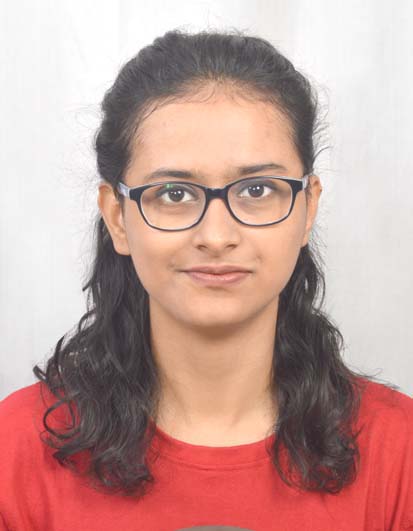
Ankita Sanyal is a doctoral candidate at Centre for West Asian Studies, Jawaharlal Nehru University, New Delhi. She worked as a summer intern at National Human Rights Commission, New Delhi in 2014 and participated in Global Initiative for Academic Networks, lecture on “Jerusalem and Abrahamic Faiths throughout the Ages” (November 2016); ICSSR-sponsored workshop on “Research Methodology Workshop in Social Sciences” (February 2019); and workshop on “Second Intensive Course on Women’s Studies in Islam and Iran” at the University of Religions and Denominations, Qom, Iran (August 2019). She currently has many publications and has presented papers in national and international conferences. She received certificate on completion of Level Two Persian Language course. Her area of interest includes minority studies, gender studies, cultural studies, education, peace and conflict studies.
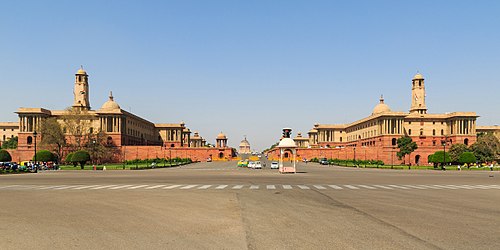
BILATERAL ISSUES BAHRAIN The CEO of LMRA highlights details on the new labour market reforms, .....
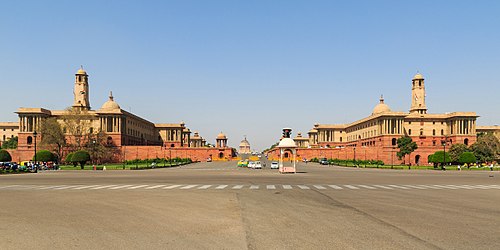
BILATERAL ISSUES EGYPT Raksha Mantri Shri Rajnath Singh to visit Egypt from September 19-20, 2.....
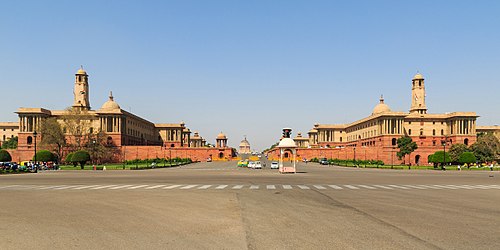
BILATERAL ISSUES IRAN Shri Sarbananda Sonowal visits Chabahar Port in Iran to Review work prog.....
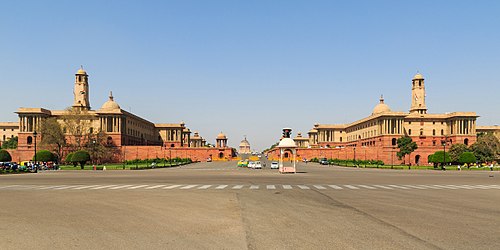
BILATERAL ISSUES BAHRAIN Deputy Chief of Naval Staff, India visits Kingdom of Bahrain, Manama,.....
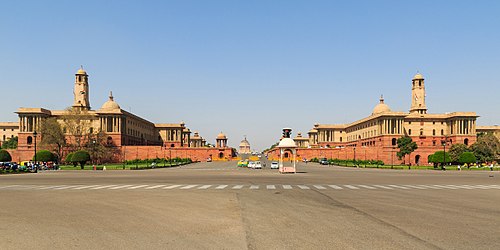
BILATERAL ISSUES BAHRAIN Buyer Seller Meet on Indian coffee between Indian exporters and Bahra.....
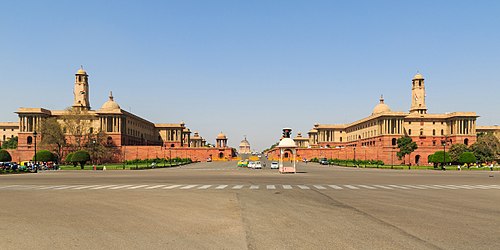
BILATERAL ISSUES BAHRAIN B2B meeting and Networking event between Bahraini & Indian IT com.....
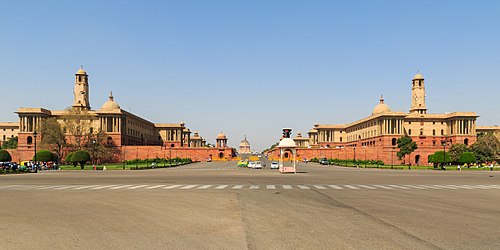
BILATERAL ISSUES OMAN Community Service Fortnight / Sewa Utsav’: ‘Celebration Thro.....
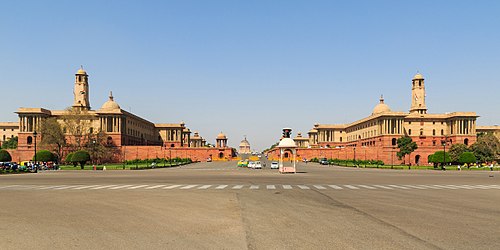
BILATERAL ISSUES BAHRAIN Virtual Buyer Seller Meet on agriculture and food products between In.....
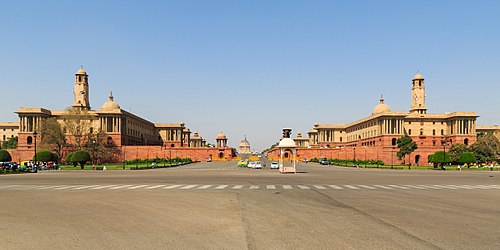
BILATERAL ISSUES BAHRAIN PM speaks on telephone with His Royal Highness Prince Salman bin Hama.....
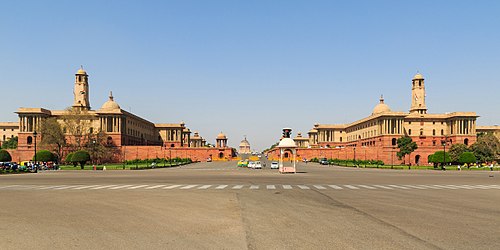
BILATERAL ISSUES ISRAEL Experts from India and Israel suggested expanding scope of India-Israe.....
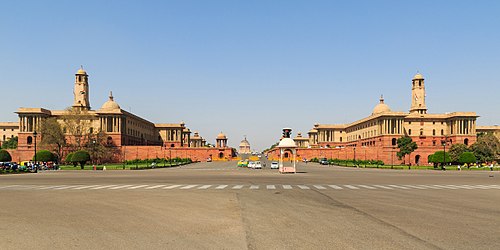
BILATERAL ISSUES BAHRAIN Press Release on virtual meeting between Minister for Education and S.....
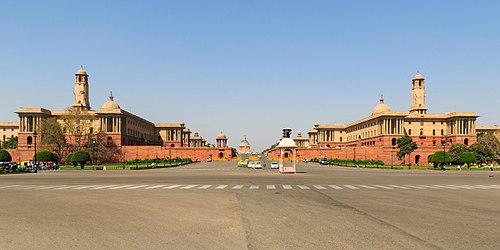
BILATERAL ISSUES BAHRAIN Ambassador’s visit to India Pavilion of Jewellery Arabia, Bahra.....
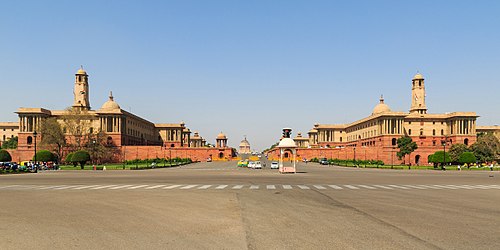
BILATERAL ISSUES BAHRAIN First consignment of GI tagged sweet dish Mihidana from West Bengal e.....
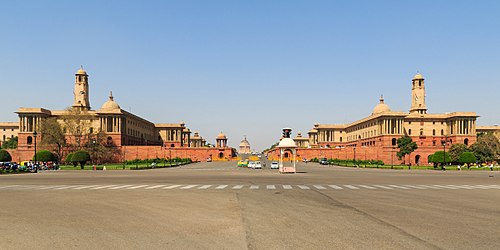
BILATERAL ISSUES ALGERIA Visit of Shri V. Muraleedharan, Minister of State for External Affair.....
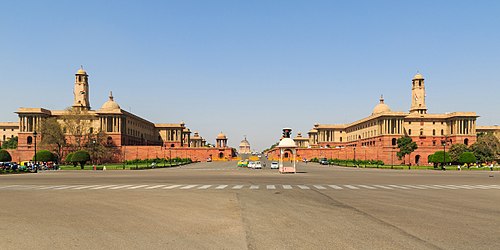
BILATERAL ISSUES ALGERIA INS TABAR undertook a bilateral Passage Exercise (PASSEX) with Algeri.....
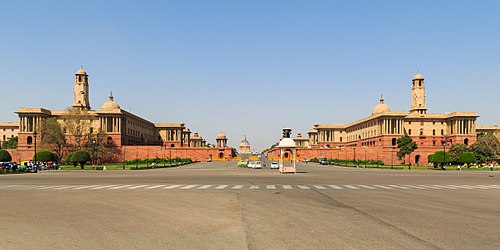
BILATERAL ISSUES BAHRAIN India expands mango export footprint to newer countries; GI certified.....
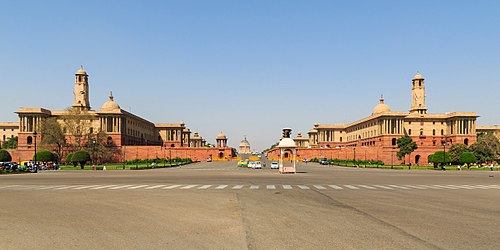
BILATERAL ISSUES ALGERIA APEDA in collaboration with Indian embassy organize virtual buyer sel.....
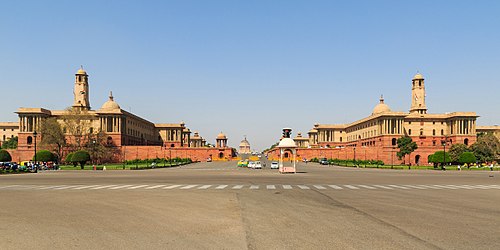
BILATERAL ISSUES BAHRAIN Third India-Bahrain High Joint Commission Meeting, New Delhi, 07 Apri.....
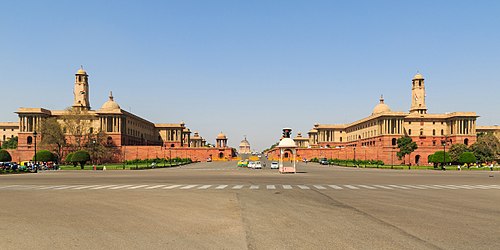
BILATERAL ISSUES BAHRAIN Indian Naval Ship Talwar’s Port Visit to Bahrain, Manama, 18 Ma.....
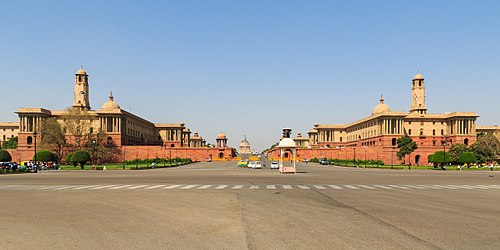
BILATERAL ISSUES IRAN Unstarred Question No.1475, Chabahar-Zaheden Railways Line, Lok Sabha, 1.....
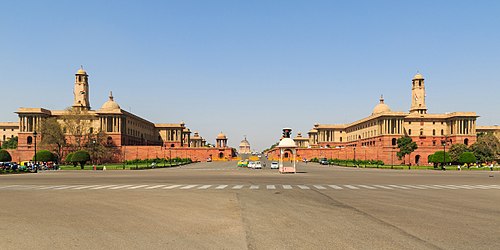
BILATERAL ISSUES IRAN Government of India strengthens cargo handling capacity of Chabahar Port.....
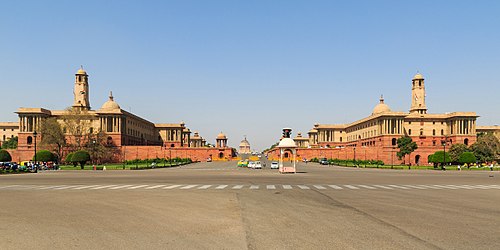
BILATERAL ISSUES BAHRAIN Warm greetings from Indian leadership on the occasion of Bahrain&rsqu.....
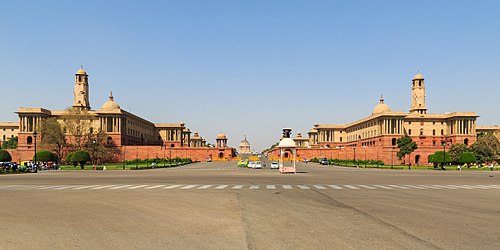
BILATERAL ISSUES BAHRAIN Prime Minister condoles the passing away of His Royal Highness Prince.....
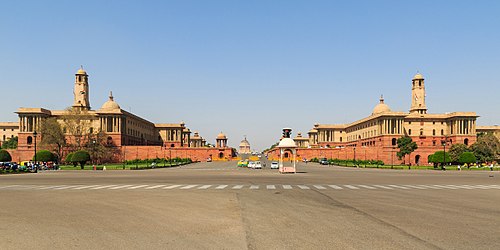
BILATERAL ISSUES BAHRAIN A B2B Webinar on Enhancing Opportunities in Pharmaceuticals and Alter.....
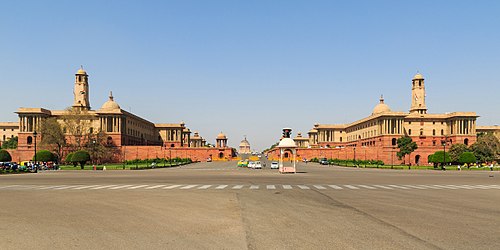
BILATERAL ISSUES IRAN Raksha Mantri Shri Rajnath Singh holds meeting with Iran's Minister .....
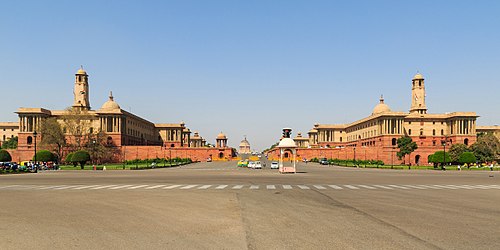
BILATERAL ISSUES ISRAEL Statement by the Official Spokesperson on the full normalisation of re.....
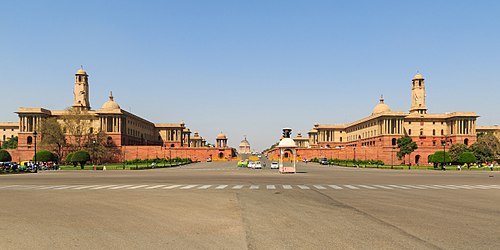
BILATERAL ISSUES ISRAEL Raksha Mantri Shri Rajnath Singh and Israeli Defence Minister telephon.....
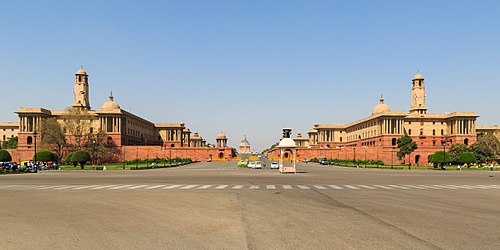
BILATERAL ISSUES IRAN Indian Navy Commences evacuation of citizens from Islamic Republic of Ir.....
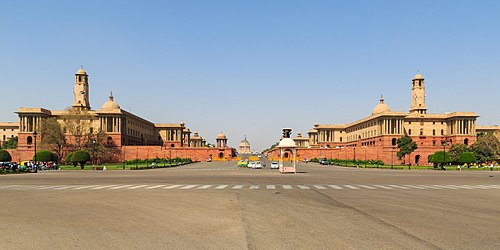
BILATERAL ISSUES EGYPT Phone call between Prime Minister Shri Narendra Modi and His Excellency.....
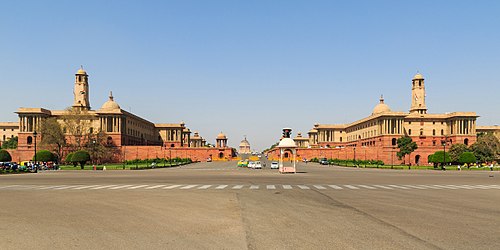
BILATERAL ISSUES BAHRAIN Telephone Conversation between PM and King of the Kingdom of Bahrain,.....
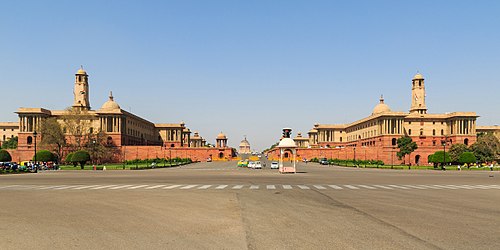
BILATERAL ISSUES IRAN IAF C-17 ‘Globemaster’ takes off for Iran, New Delhi, 9 Marc.....
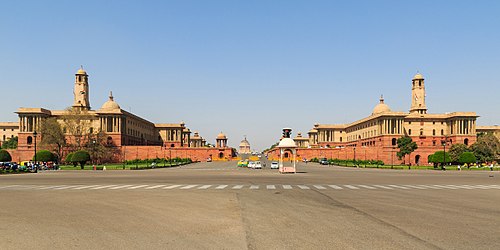
BILATERAL ISSUES IRAQ Travel Advisory for Indian Nationals travelling to Iraq, New Delhi, 19 F.....
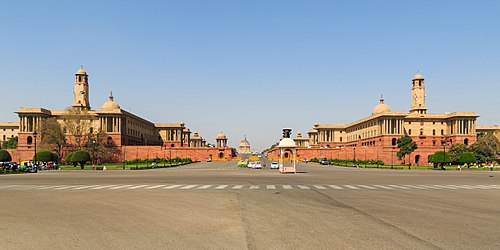
BILATERAL ISSUES EGYPT Photo exhibition on “Making of Indian Constitution and Life of Dr.....
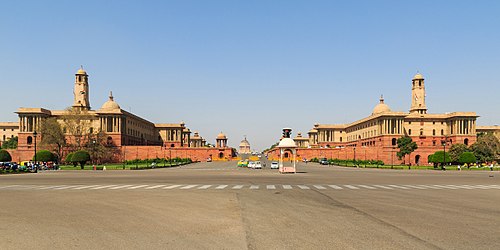
BILATERAL ISSUES EGYPT Prize Distribution Function of “Glimpses of India” Painting.....
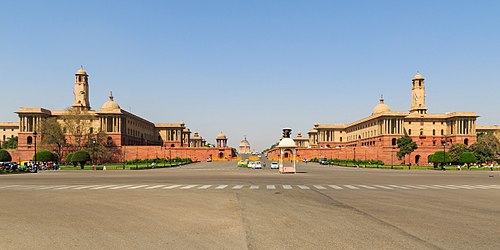
BILATERAL ISSUES EGYPT Consular Camp in Port Said on 22 November 2019, Cairo, 19 November 2019.....
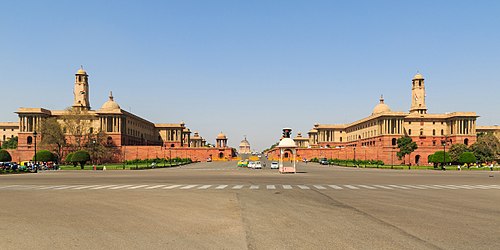
BILATERAL ISSUES JORDAN Meeting between Prime Minister and King of Jordan in Riyadh, Riyadh, 2.....
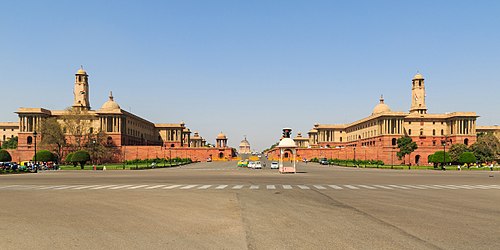
BILATERAL ISSUES a. IRAN Foreign Office Consultations between India and Iran, Tehran, 16 Septe.....
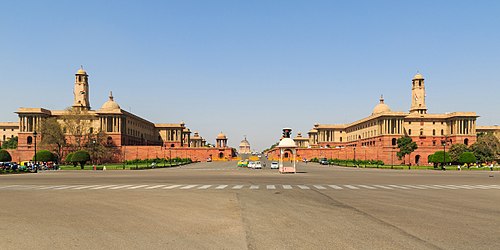
BILATERAL ISSUES a. BAHRAIN State Visits of Prime Minister to Bahrain (August 24-25, 2019), Ne.....
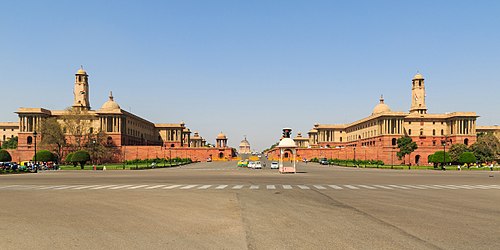
BILATERAL ISSUES BAHRAIN Cabinet approves Memorandum of Understanding between India and B.....
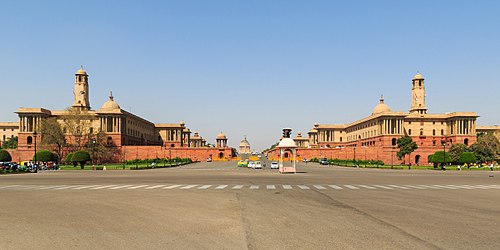
BILATERAL ISSUES IRAN UNSTARRED QUESTION No. 662 MPACT OF AMERICAN BAN ON CHABAHAR PORT, Rajya.....
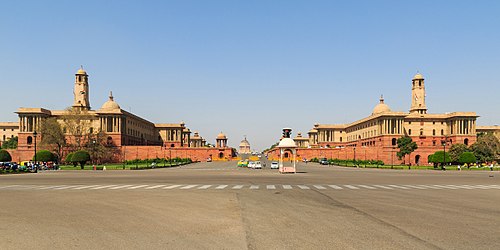
BILATERAL ISSUES IRAN 11th India Iran Joint Consular Committee Meeting (JCCM), New Delhi, 16 M.....
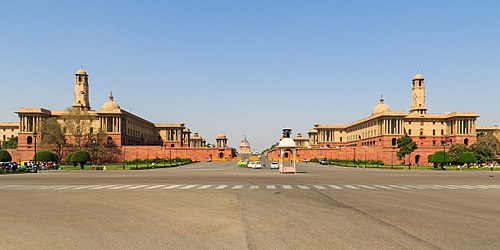
IRAN India extends relief assistance to Iran after recent floods, Tehran, 17 April 2019 In lin.....
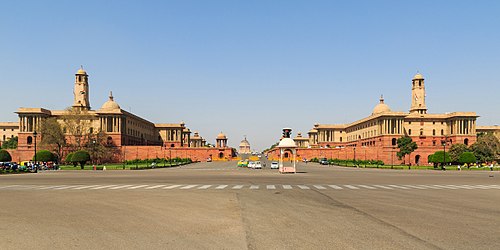
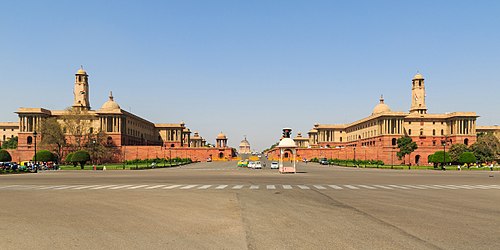
BILATERAL ISSUES EGYPT India condemns terrorist attacks in Egypt, New Delhi, 22 February 2019 .....
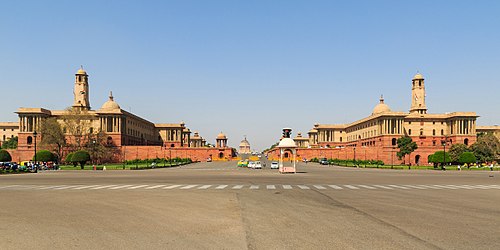
BILATERAL ISSUES ALGERIA Visit of Foreign Minister of Algeria to India (January 30-February 01.....
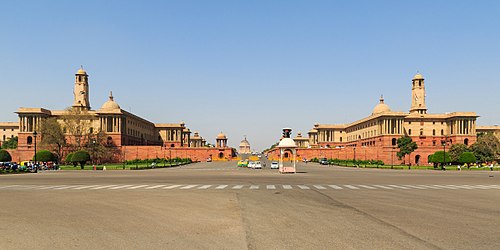
ALGERIA Cabinet approves Agreement between India and Algeria on Cooperation in the field of Space.....
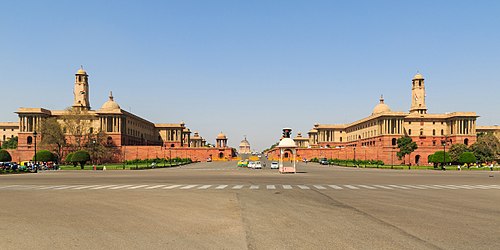
BILATERAL ISSUES IRAQ Jaipur Foot Camp in Karbala, Karbala, 21 November 2018 A 40-day Artif.....
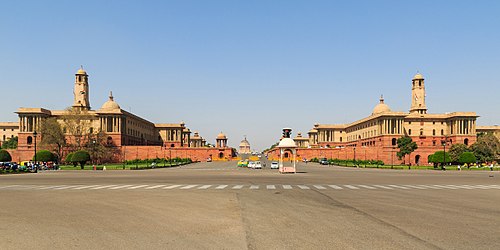
BILATERAL ISSUES KUWAIT Visit of External Affairs Minister to State of Qatar and State of Kuwa.....
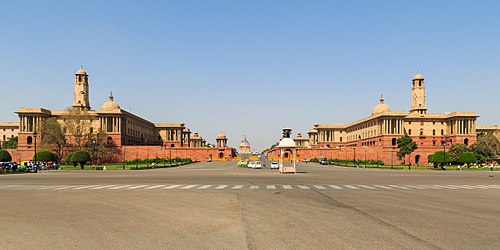
BILATERAL ISSUES EGYPT Cabinet approves MoU between India and Egypt on cooperation in the fiel.....
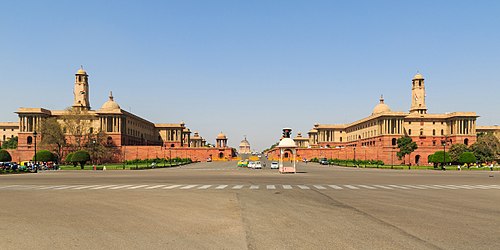
BILATERAL ISSUES BAHRAIN Question No. 3566, Unpaid Workers in Bahrain, Lok Sabha, New Delhi, 0.....
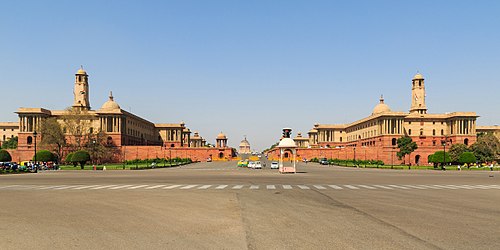
BILATERAL ISSUES BAHRAIN Visit of External Affairs Minister to Manama, Bahrain (July 14-15, 20.....
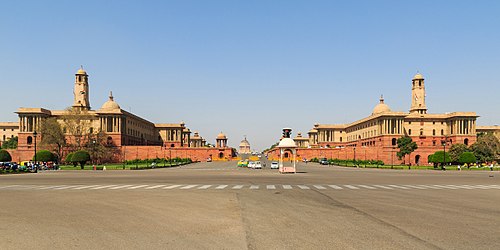
BILATERAL ISSUES BAHRAIN Cabinet approves MoU between India and Bahrain on cooperation in the .....
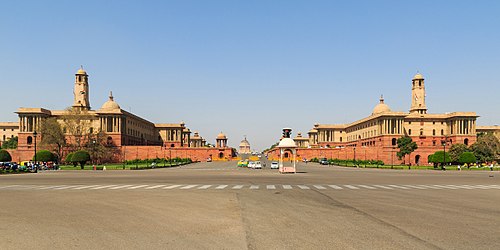
BILATERAL ISSUES IRAN External Affairs Minister’s meeting with Iranian Foreign Minister,.....
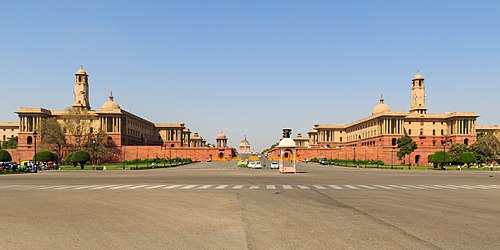
BILATERAL ISSUES IRAN Cabinet approves MoU between India and Iran on the establishment of an e.....
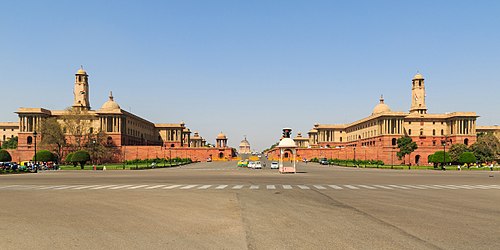
(Monthly Digest of Official Indian Statements on Middle East) BILATERAL ISSUES EGYPT Mr. Sa.....
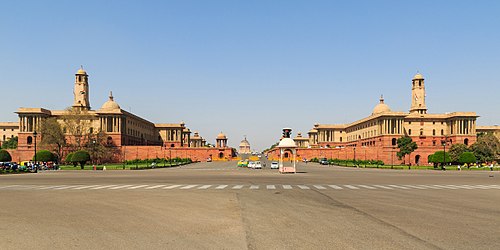
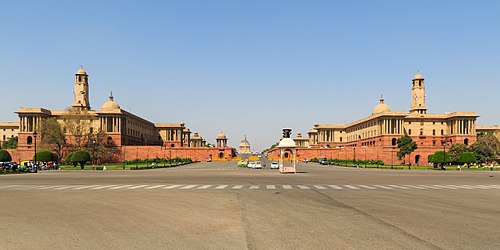
(Monthly Digest of Official Indian Statements on Middle East) BILATERAL ISSUES IRAN Launch .....
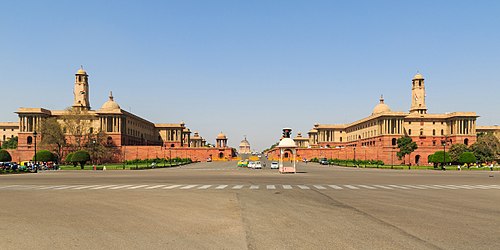
(Monthly Digest of Official Indian Statements on Middle East) BILATERAL ISSUES &.....
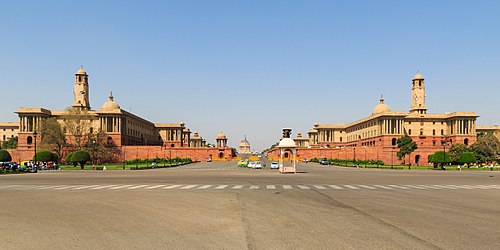
BILATERAL ISSUES a. EGYPT 1. H.E. Col. Rajyavardhan Singh Rathore, Minister of State for Youth.....
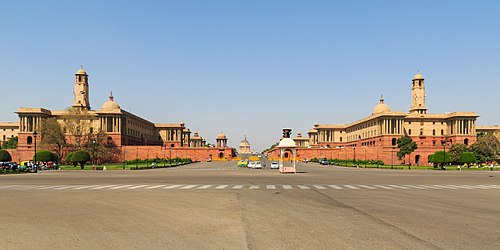
BILATERAL ISSUES a. IRAQ 1. India’s position on the Referendum held in the Kurdistan Reg.....
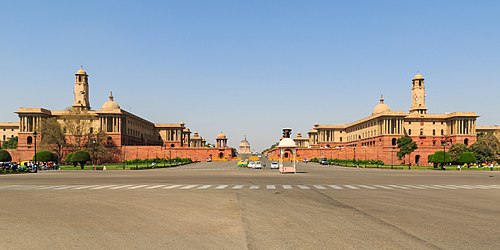
BILATERAL ISSUES IRAN 1. 6th Meeting of Joint Committee on Ports and Maritime Cooperation.....
